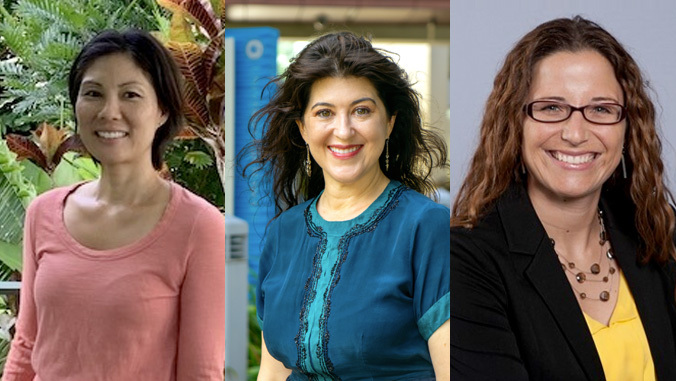
University of Hawaiʻi at Mānoa faculty have been awarded $60,000 for a project that will help implement a program using physical activity to aid in care for pediatric cancer patients. The grant was awarded by the Medical Research Program Fund of the Hawaiʻi Community Foundation and is a collaboration between the College of Education (COE), the UH Cancer Center and the Kapiʻolani Medical Center for Women and Children.
The project, Pediatric Physical Activity (PePA): Understanding Best Practices in Implementing Physical Activity (PA) for Patients diagnosed With Childhood Cancer, runs from July 2021 through December 2022. It will deliver a virtual-based PA program for children who have been recently diagnosed with cancer and who are currently undergoing treatment.
Childhood cancer patients have a five-times higher risk of developing diseases, such as heart disease and diabetes, compared to cancer-free children. The COVID-19 pandemic has made it more difficult to participate in PA, which could lead to additional risk for pediatric cancer patients.
Assistant Professor Paulette M. Yamada of the COE Department of Kinesiology and Rehabilitation Science (KRS) leads the project team, along with her UH co-directors, KRS Associate Professor Erin Centeio and UH Cancer Center Associate Professor Erin Bantum.
Expanding physical activity care to pediatric patients
“It is amazing to have this opportunity to expand physical activity-related survivorship care to the pediatric population,” Yamada said. “Physical activity programs designed for the pediatric population have not received the same amount of attention as adult cancer exercise rehabilitation. PA is important because it is associated with positive psychosocial outcomes, reduction in fatigue, and may reduce the risk of heart disease after the completion of treatment.”
Yamada has been working with the REHAB Hospital of the Pacific since 2017, having successfully implemented an ongoing adult cancer exercise rehabilitation program on Oʻahucalled iCare.
“Having the opportunity to work with colleagues both at UH and at Kapiʻolani Medical Center, in addition to incorporating a peer aspect into the study is very exciting,” said Bantum.
The Kapiʻolani Medical Center will recruit and recommend 25 pediatric patients to be enrolled in the PePA project. Patients will undergo baseline assessments of fitness and quality of life, among other measures, before being invited to participate in 12 weeks of virtual PA intervention with their peers twice a week for 60 minutes. They will be led through activities that are relatable and age/intensity-appropriate.
This pilot study will test the feasibility and participant adherence to the program, and since it is virtual, it can be made available to children on neighboring islands, advancing the program’s goal of supporting the quality of life of cancer patients of all ages throughout Hawaiʻi.
This program is an example of UH Mānoa’s goal of Excellence in Research: Advancing the Research and Creative Work Enterprise (PDF), one of four goals identified in the 2015–25 Strategic Plan (PDF), updated in December 2020.

